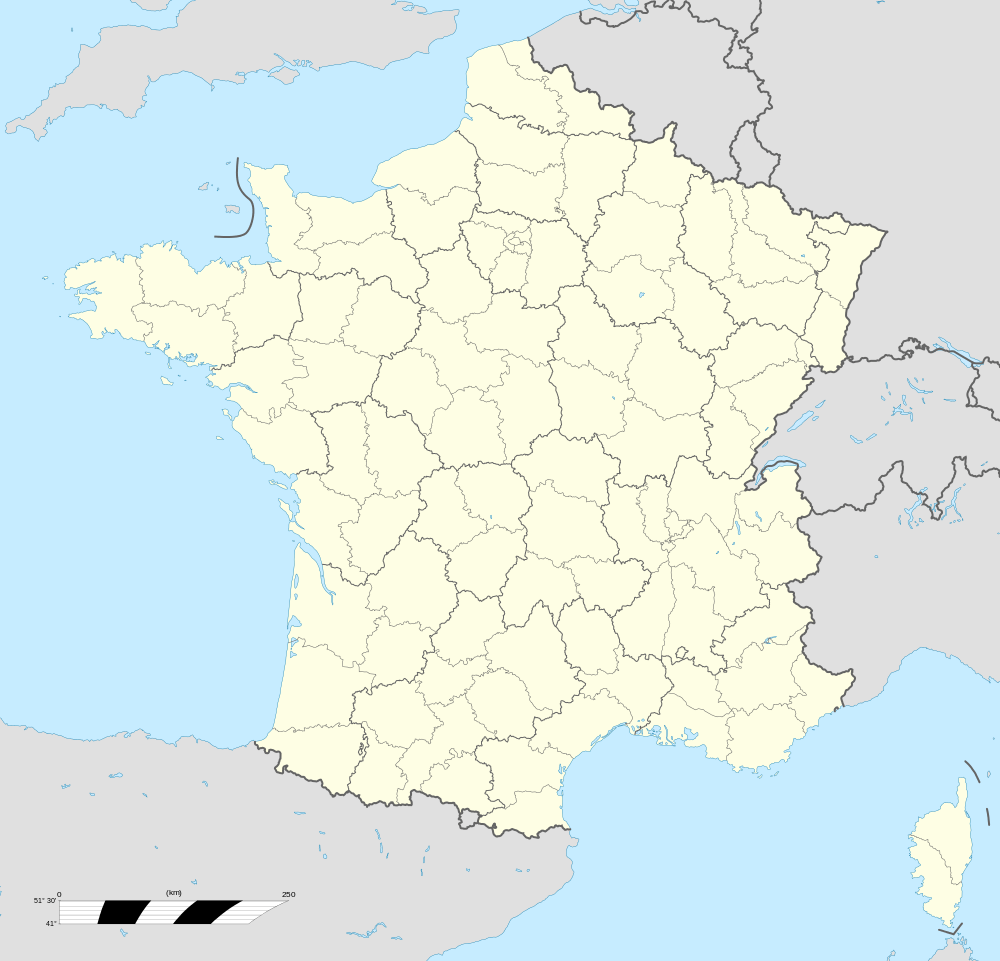Issoire
| Issoire | |
|---|---|
 | |
 Issoire | |
|
Location within Auvergne region  Issoire | |
| Coordinates: 45°32′42″N 3°14′59″E / 45.545°N 3.2497°ECoordinates: 45°32′42″N 3°14′59″E / 45.545°N 3.2497°E | |
| Country | France |
| Region | Auvergne |
| Department | Puy-de-Dôme |
| Arrondissement | Issoire |
| Canton | Issoire |
| Government | |
| • Mayor (2008–2014) | Jacques Magne |
| Area1 | 19.69 km2 (7.60 sq mi) |
| Population (2006)2 | 14,488 |
| • Density | 740/km2 (1,900/sq mi) |
| INSEE/Postal code | 63178 / 63500 |
| Elevation |
360–560 m (1,180–1,840 ft) (avg. 386 m or 1,266 ft) |
|
1 French Land Register data, which excludes lakes, ponds, glaciers > 1 km² (0.386 sq mi or 247 acres) and river estuaries. 2 Population without double counting: residents of multiple communes (e.g., students and military personnel) only counted once. | |
Issoire (Occitan: Soire, archaic Occitan: Issoire, Ussoire) is a commune in the Puy-de-Dôme department in Auvergne in central France.
Geography
Issoire is located on the Couze River, near its junction with the Allier, 40 km (25 mi) SSE of Clermont-Ferrand on the Paris-Lyon-Méditerranée railway to Nîmes. Issoire is situated in one of the fertile plains of the Petites Limagnes—basins that follow the Allier River from its source in the Massif Central to the Grande Limagne north of Clermont-Ferrand and on to the Loire.

History
Issoire (Iciodurum) is said to have been founded by the Arverni, and in Roman times rose to some reputation for its schools. In the 5th century the Christian community established there by Stremonius in the same century was overthrown by the fury of the Vandals.
During the religious wars of the Reformation, Issoire suffered very severely. Merle, the leader of the Protestants, captured the town in 1574, and treated the inhabitants with great cruelty. The Roman Catholics retook it in 1577, and the ferocity of their retaliation may be inferred from the inscription "Ici fut Issoire" ("Here was Issoire") carved on a pillar which was raised on the site of the town. In the contest between the Leaguers and Henry IV, Issoire sustained further sieges, and never wholly regained its early prosperity.
Economy
Voxan motorcycles are manufactured at Issoire. Also, tourists often visit the village to see the church of Saint-Austremoine.
Sights
The church of Saint-Austremoine is built on the site of an older chapel raised over the tomb of St. Austremoine (Stremonius), and affords an excellent specimen of the Romanesque architecture of Auvergne. There is also a clock tower and the museum of the philosopher's stone.
Twin towns
 Neumarkt in der Oberpfalz, Germany, since 1971.
Neumarkt in der Oberpfalz, Germany, since 1971.
See also
References
![]() This article incorporates text from a publication now in the public domain: Chisholm, Hugh, ed. (1911). Encyclopædia Britannica (11th ed.). Cambridge University Press.
This article incorporates text from a publication now in the public domain: Chisholm, Hugh, ed. (1911). Encyclopædia Britannica (11th ed.). Cambridge University Press.
External links
| Wikimedia Commons has media related to Issoire. |